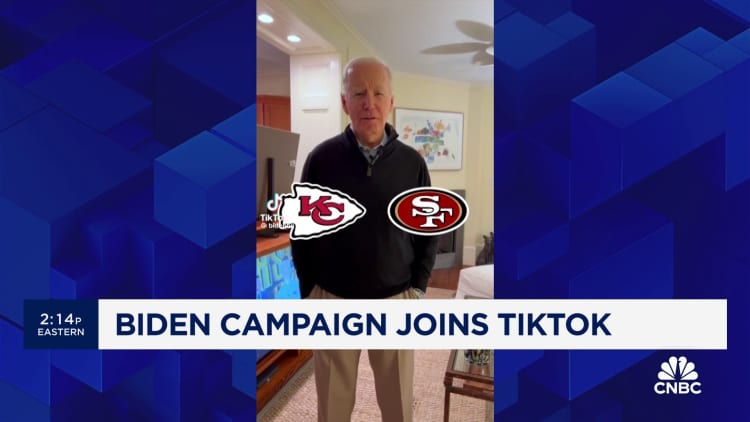TikTok Music has officially launched in Australia, Singapore, and Mexico to a small group of users. This move comes as the popular social media app continues to expand its reach worldwide. However, TikTok’s presence in the U.S. has been met with controversy, especially in the realm of politics.
When President Joe Biden joined TikTok, it was seen as a playful way to connect with younger voters. His campaign has since gained a significant following on the platform, with millions of likes and followers. As the 2024 election approaches, Biden’s use of TikTok has become a focal point in the debate over the app’s potential ties to the Chinese government.
Members of the House Select Committee on the Chinese Communist Party have introduced a bill that would require ByteDance, TikTok’s parent company, to divest the app or face a ban in the U.S. This move has been met with both support and criticism, with some lawmakers expressing concerns about national security and others defending the app’s role in reaching young voters.
Despite the controversy, TikTok remains a popular platform for political campaigns to connect with voters, especially younger demographics. Influencers play a key role in rallying support for specific issues, with campaigns enlisting their help to mobilize voters and raise awareness.
In conclusion, the debate over TikTok’s role in U.S. politics is likely to continue as the 2024 election approaches. While the app presents new opportunities for reaching voters, concerns about national security and privacy remain at the forefront of the debate.
My opinion on this matter is that while TikTok can be a valuable tool for reaching young voters, it is essential to address concerns about data privacy and national security. It is important for lawmakers to strike a balance between utilizing the platform for political campaigns and ensuring the safety and security of users. Ultimately, transparency and accountability are crucial in navigating the complex intersection of social media and politics.


